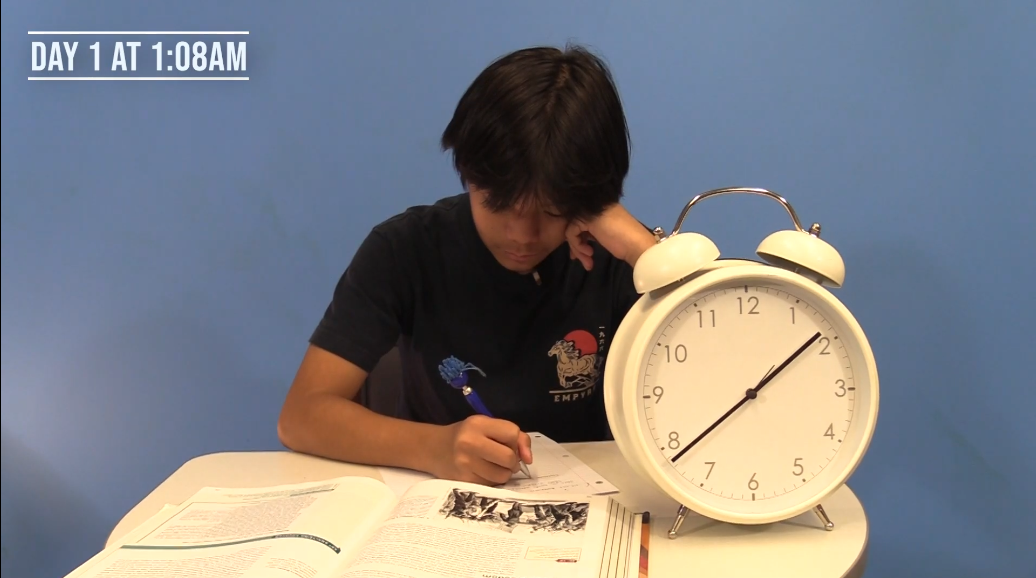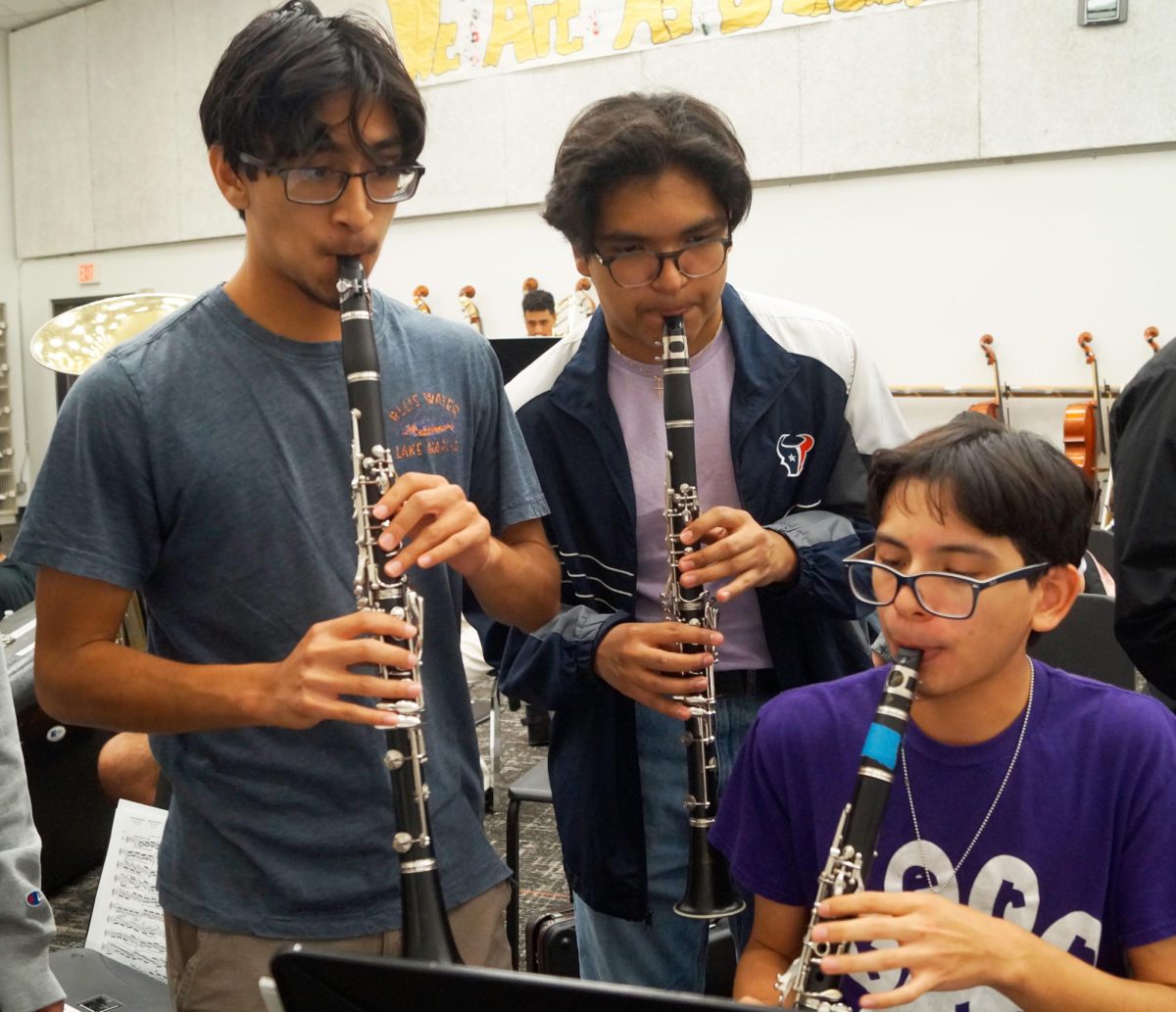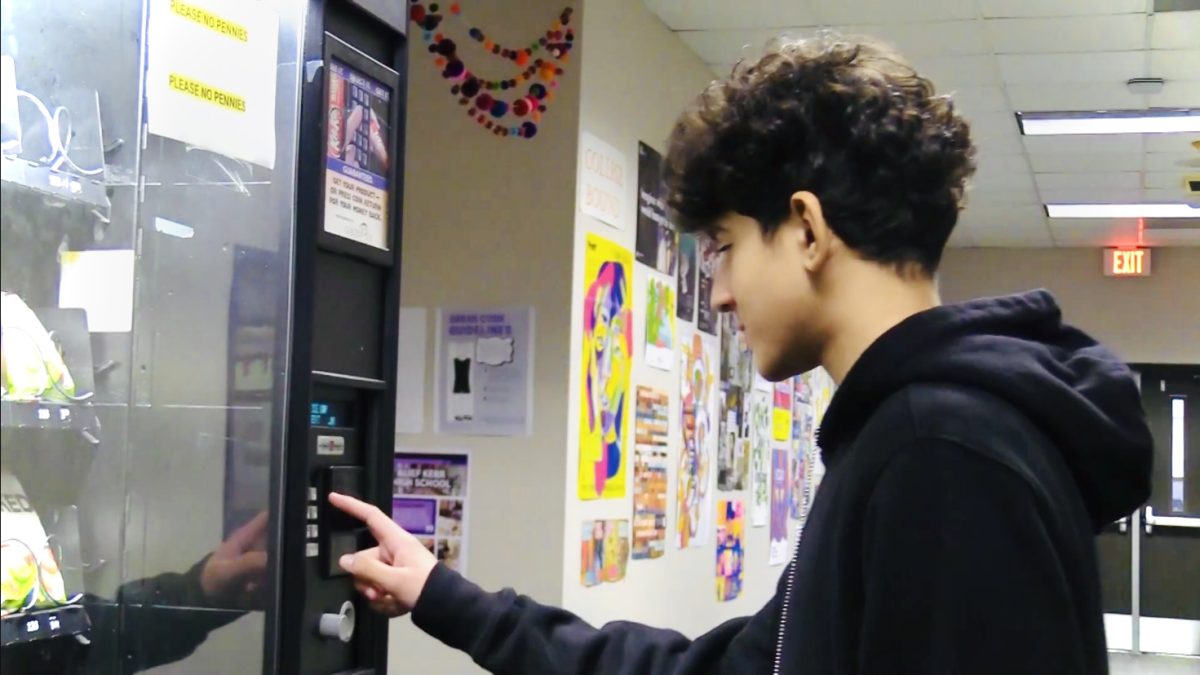A group of boys kick around a soccer ball, passing it to their team members and securing it from their opponents. They’re extremely focused on their moves until a girl walks up to them. Their kicking and passing stops. The girl asks if she can play. The boys laugh.
“You’re gonna play soccer?” one of the boys said. With a huff of disbelief, they laughed again.
“Yeah, why can’t I?” the girl said.
The girl in this scene is sophomore Anne Pierre. She faced opposition because of her gender when she had vacationed in her home country of Haiti a few years ago. At the time, soccer was dominantly played by boys and watched by girls.
While she may have felt discouraged, Pierre instead showed them what she could do.
“I played soccer, and I shut them up because I was better than half of them. Everyone was in shock because I was a girl.”
Women of all ages have been in similar shoes as Pierre, and many of them have witnessed or overcome the challenges of gender prejudice and stereotypes in their lives.
English teacher Kathleen Harrison remembers when gender discrimination had really impacted her. She was 12 years old at the time.
“It was a Saturday. My mom had fixed lunch,” Harrison said. “When we finished lunch, my dad told my brothers ‘It’s time to go [hunting].’ They got up and left and didn’t clear their places, didn’t clean up. I remember I got very, very upset. I went to my room and cried.”
“My mother asked what was wrong. I said: ‘it’s not fair! It’s not fair that they don’t have to help; it’s not fair that they don’t have to clean up after themselves.’ My mother is educated and she says: ‘it’s okay. You don’t have to help me either.’ And I was like: ‘No! That’s not the point! The point is that if they eat a meal they need to clean up after themselves. We’re not the servants!’”
Harrison’s response prompted her mother to react as well.
“After [my father and brothers] came back, my mother thought about it and was like: ‘You know what? You guys are going to do this.’” Harrison said.
From a more modern view, junior Julia Chamon says gender stereotypes have impacted her personal values as a woman.
“I believe that gender stereotypes are truly one of the greatest challenges women face- not only me,” Chamon said. “If I lose my temper for even a moment, jokes about my biology and reproduction cycle are made. My own father disregards how I feel about a situation, and laughs as he says, ‘You’ll never get a husband with that attitude.’ ‘I don’t want my life to be decided for me, and I strongly don’t want my main aspiration in life to [be marriage].”
Even with these stereotypes, the perception of gender differences shows improvement for some. Sophomore Carlos Portela has seen this improvement firsthand as he interacts with his peers at school.
“During weights in P.E, females are seen as less by the male students because they think [the female students] can’t lift as much weight as males when, actually, some females are super strong,” Portela said.
Senior Paula Natividad sees this change of views in her own life and her choice of entertainment. The media portrays female characters that appeal to her a lot.
“I’ve been watching so many shows that deal with women empowerment like Agent Carter, Vikings, Orphan Black,” Natividad said. “In my childhood, there were a lot of male protagonists that I looked up to but I didn’t really know about the disparity between males and females in media. Now, there are more females being paid more attention to. It’s so great, I love it. It gives me hope that things are changing.”
Women’s History Month, a month-long celebration in March that brings attention to the stories of women, tends to be associated with the lives of historical women. However, for some, this month is also a celebration of the lives of modern women. Portela finds female role models close to home, as he looks up to his mother and sister.
“My sister wants to be the first in the family to be able to graduate from college so she’s working hard in Florida to graduate,” Portela said. “And my mom worked hard to go all the way to college. Although she couldn’t graduate, she got that far, so I see that as women empowerment. They motivate me to do my best.”
While gender inequality still exists in many aspects of modern society, these accounts of female bravery and strength are a direct reflection of how important it is to be aware of and fully appreciate the stories of women’s lives. Chamon sees things like Women’s History Month as an opportunity for society to improve its overall perspective of women everywhere.
“Women are intelligent. They can be smart, and ability is not based on gender,” Chamon said. “Women and men are to work and live as allies. As equals. The day that [things like] Women’s History Month isn’t seen as a threat to the male reputation, but as a compliment to the reputation of women, is the day that this world will be wiser.”






